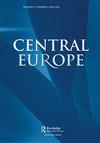Creating nationality in Central Europe, 1880–1950. Modernity, violence and (be)longing in Upper Silesia
IF 0.1
2区 历史学
Q2 HISTORY
引用次数: 6
Abstract
Attention is also paid to Twardowski’s successors such as Kazimierz Ajdukiewicz, Tadeusz Czeżowski, and Kotarbiński, who were guided by the idea that ‘the subjects of humanities are expressions of mental products’ (p. 281). Darius Łukasiewicz, speaking of Czeżowski’s ‘Brentanian turn’ (p. 122), admits a definite influence of Jan Łukasiewicz even in the adoption of Brentano, and explains how Czeżowski nevertheless kept his footing in both moral aspects of philosophy and accurate methods, as many LWS scholars did. The moral connotation that Czeżowski found in Twardowski’s theory of action and products also resonates with Kotarbiński’s formal analysis, as Marta Zaręba discusses. Her paper builds a firm bridge between the LWS and the Anglo-Saxon modus operandi. Stepan Ivanyk’s chapter, entitled ‘The Lvov-Warsaw School as a Multicultural Phenomenon, Ukrainian Aspect’, deserves special mention, for it deals with the Ukrainian city that nurtured the ideas of the School. It is indeed important to understand that the Galicia’s capital Lvov on the side of the Austro-Hungarian Empire and the reborn capital Warsaw that belonged to Imperial Russia for centuries faced varying socio-political circumstances. Hence the philosophy of the LWS, which in principle reflected contemporary problems and maintained the sense of reality, might have resulted in different investigations. As he points out, Twardowski was as much remarkable to Ukrainian students as for Poles. Neither nationality nor ethnicity mattered to Twardowski in his teachings. The luminary opened his lectures to Jewish students, too (p. 57). Marcin Tkaczyk’s contribution also emphasizes the influence that the LWS exerted on the theologians of the Cracow Circle, including Józef M. Bocheński and Jan Salamucha, who held the applicability of formal argumentations in high regard. Both authors took regional dynamics within modern Polish cities into account. Overall, the editors of this book have succeeded in providing new research perspectives on the LWS. They have not, however, discussed the concept of European culture enough. In order to understand the LWS’s role more precisely, it is necessary to rethink the history of the School in the wider social and intellectual contexts of the twentieth century.中欧民族的形成(1880-1950)。上西里西亚的现代性、暴力和(be)渴望
文章还关注了特瓦尔多夫斯基的后继者,如Kazimierz Ajdukiewicz、Tadeusz Czeżowski和Kotarbiński,他们的指导思想是“人文学科的主题是精神产品的表达”(第281页)。Darius Łukasiewicz在谈到Czeżowski的“Brentanian turn”(第122页)时,承认Jan Łukasiewicz甚至在采用Brentano时也有一定的影响,并解释了Czeżowski如何像许多LWS学者一样,在哲学的道德方面和准确的方法上站稳脚跟。正如Marta Zaręba所讨论的,Czeżowski在Twardowski的行为和产品理论中发现的道德内涵也与Kotarbiński的形式分析产生了共鸣。她的论文在LWS和盎格鲁-撒克逊模式之间架起了一座牢固的桥梁。Stepan Ivanyk的章节,题为“利沃夫-华沙学派作为一种多元文化现象,乌克兰方面”,值得特别提及,因为它涉及孕育了该学派思想的乌克兰城市。了解加利西亚的首都利沃夫(位于奥匈帝国一边)和重生的首都华沙(几个世纪以来属于俄罗斯帝国)面临着不同的社会政治环境,这一点确实很重要。因此,LWS的哲学在原则上反映了当代问题,并保持了现实感,这可能会导致不同的研究。正如他所指出的那样,对乌克兰学生和波兰人来说,特瓦尔多夫斯基同样引人注目。在他的教导中,国籍和种族对特瓦尔多夫斯基来说都不重要。这位名人也向犹太学生开放了他的讲座(第57页)。Marcin Tkaczyk的贡献还强调了LWS对克拉科夫圈神学家的影响,包括Józef M. Bocheński和Jan Salamucha,他们高度重视形式论证的适用性。两位作者都考虑到了现代波兰城市的区域动态。总的来说,这本书的编辑们已经成功地为LWS提供了新的研究视角。然而,他们并没有充分讨论欧洲文化的概念。为了更准确地理解LWS的作用,有必要在20世纪更广泛的社会和知识背景下重新思考LWS的历史。
本文章由计算机程序翻译,如有差异,请以英文原文为准。
求助全文
约1分钟内获得全文
求助全文
来源期刊

Central Europe
HISTORY-
CiteScore
0.20
自引率
0.00%
发文量
7
期刊介绍:
Central Europe publishes original research articles on the history, languages, literature, political culture, music, arts and society of those lands once part of the Habsburg Monarchy and Poland-Lithuania from the Middle Ages to the present. It also publishes discussion papers, marginalia, book, archive, exhibition, music and film reviews. Central Europe has been established as a refereed journal to foster the worldwide study of the area and to provide a forum for the academic discussion of Central European life and institutions. From time to time an issue will be devoted to a particular theme, based on a selection of papers presented at an international conference or seminar series.
 求助内容:
求助内容: 应助结果提醒方式:
应助结果提醒方式:


